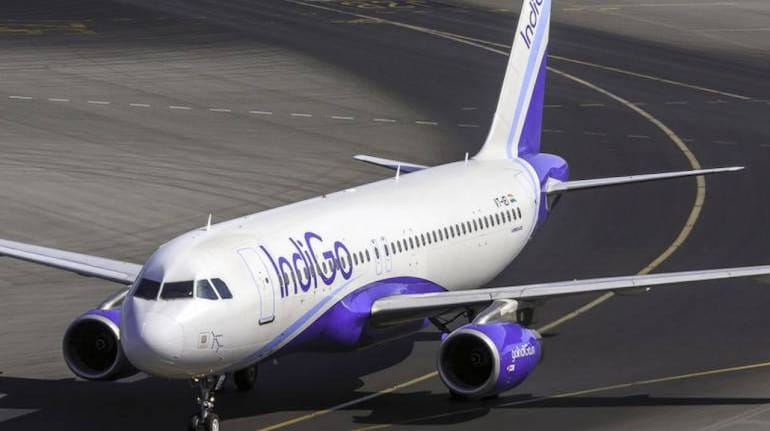



After being in the news for all the wrong reasons for over a year, thanks to the very public spat between its cofounders Rahul Bhatia and Rakesh Gangwal, India’s largest domestic airline IndiGo went silent.
This silence was broken when, on March 29, IndiGo informed the BSE that Chief Financial Officer (CFO) Jiten Chopra had resigned and that its board had appointed Gaurav Negi in his place.
Between 2016 and 2022, IndiGo, which commands a domestic market share of over 50 percent, has seen four people, including Negi, take up the position of CFO. Murmurs about what such frequent changes meant for the company's financial health have been heard for a while.
In comparison, at Air India, S. Venkat was acting Director Finance (DF) between September 2011 and December 2011 awaiting government approval of his appointment. He took over as DF in December 2011, a post he held until October 2015. Similarly, at the other low-cost airline, SpiceJet, Kiran Koteshwar was appointed as CFO in October 2014, a position he held until the end of August 2020.
There is little doubt that a CFO in any company is an important position. A person who worked in the finance department of an airline said the CFO was the first point of contact between the company and its stakeholders. The CFO is also responsible for formulating strategies and their implementation.
Avanti T Chandele, partner at Mind Legal, pointed out that under section 203 of Companies Act, 2013 the CFO is considered a Key Managerial Personnel, and every listed company having a paid-up share capital of more than Rs 10 crore is required to appoint a CFO.
Another person who served in the finance department of a major airline for over three decades added that the definition of Key Managerial Personnel has been made more elaborate in the Companies Act of 2013 as the 1956 Act had restricted its scope to a Managing Director, Whole-Time Director and Manager. He pointed out that the current definition of the term provides for the inclusion of the Chief Executive Officer (CEO), the Manager, the Managing Director, the Company Secretary, the Whole-Time Director, the CFO and such other executives as may be prescribed.
“Key Managerial Personnel (KMP) or Key Management Personnel refers to the employees of a company who are vested with the most important roles,” said the person quoted above, adding that a CFO required continuity in the post to infuse confidence in stakeholders and investors. “Frequent changes in CFO other than through attrition reflect a difference in opinions at higher levels and is not good for the future of a company,” he added.
While international and domestic analysts and various domestic securities firms which track airline companies declined to comment, a person who retired as the CFO of a major airline said a CFO assumes a very key role in an organisation and is second to the chief executive officer or chairman and managing director.
From a global perspective, the typical tenure of a CFO for large companies is an average of about four-and-a-half to five years, said Yashojit Mitra, partner at Economic Laws Practice. The fact that IndiGo has had to appoint four CFOs since 2016 is not in sync with the average tenure of CFOs in corporate India, he said.
The frequent change of CFO in IndiGo may be unusual, but since the financial health of the company appears to be stable, there seems to be no reason for further speculation on the matter, Chandela said.
“The biggest airline in the country, though, has not assigned any clear reasons for the frequent changes in the designation of CFOs. It may be linked to the ongoing conflict between Ukraine and Russia. IndiGo is looking to expand international operations in the present scenario, which has resulted in escalated oil prices and the appointment of an experienced personnel like Gaurav Negi may just be what the company needs,” Chandele said.
Of course, financial health and differences of opinion are just two of the reasons why CFOs quit a company. A CFO can resign from a company due to personal or professional reasons, but sometimes companies can also remove a CFO for reasons like governance issues, a working capital crisis and financial constraints.
In Jiten Chopra’s case, as also in the case of his predecessors, the reasons have not been specified. A message sent to IndiGo seeking a comment on why there had been such frequent changes in the position of CFO remained unanswered.
“Any change in a company’s CFO coupled with consistent underperformance or huge fluctuations in the financial statements would call for a check on the company’s fundamentals,” Chandele added.
Chandele said the recent shuffle in the top management of the company with the appointment of Rahul Bhatia as managing director may also have triggered this change. “With the change in top management, it is not new to expect some changes to trickle down in an organization to better suit the goals and objectives of the company,” Chandele added.
There are some who speculate that some of the CFOs may have quit IndiGo because, like in the case of employees in most departments, their salaries too had been cut while their workload kept increasing.
Discover the latest Business News, Sensex, and Nifty updates. Obtain Personal Finance insights, tax queries, and expert opinions on Moneycontrol or download the Moneycontrol App to stay updated!
Find the best of Al News in one place, specially curated for you every weekend.
Stay on top of the latest tech trends and biggest startup news.